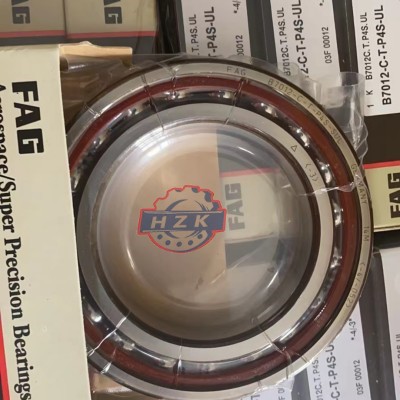Bearing life and efficiency depend on your maintenance. If not properly maintained, even high quality bearings can wear out quickly or (worse still) fail completely before the expected life of the B10. There are various steps you can take to ensure your bearings provide the best possible service and longest life. Some of these measures include:
Choose the right bearing. The bearing size must be selected according to the power requirements of the application.
Bearing lubrication minimizes friction and prevents wear, galling and corrosion. The most common cause of bearing failure is improper lubrication. Lubrication must be carried out as recommended in order for the bearings to perform properly throughout their life. The key is to use the correct type and amount of lubricant.
Inspect the bearings for physical damage or signs of wear. Use a shaft earthing device to avoid damage to the bearings and to protect them from stray currents. Steve Katz, president of Emerson Bearings, explains: “Under standard operating conditions, bearings typically perform well through their predicted ‘B10 life’, the point at which 10% of a given bearing product can fail. In harsh environments such as food production and processing. Among these, bearings are statistically more prone to failure.”
Choosing the right bearing for the application and maintaining it properly can greatly reduce the risk of unexpected bearing failure, which can lead to unplanned downtime, lost productivity and ultimately lost profits.
Emerson Bearings, a national niche bearing company based in Boston, Massachusetts and a subsidiary of Action Bearing serving the New England market, shares tips on how to protect and maintain your bearings.
To request a specification describing the characteristics of various types of bearings in terms of load, accuracy, speed, noise and friction, contact Emerson Bearings at 8613561222997
Post time: Jun-29-2023





